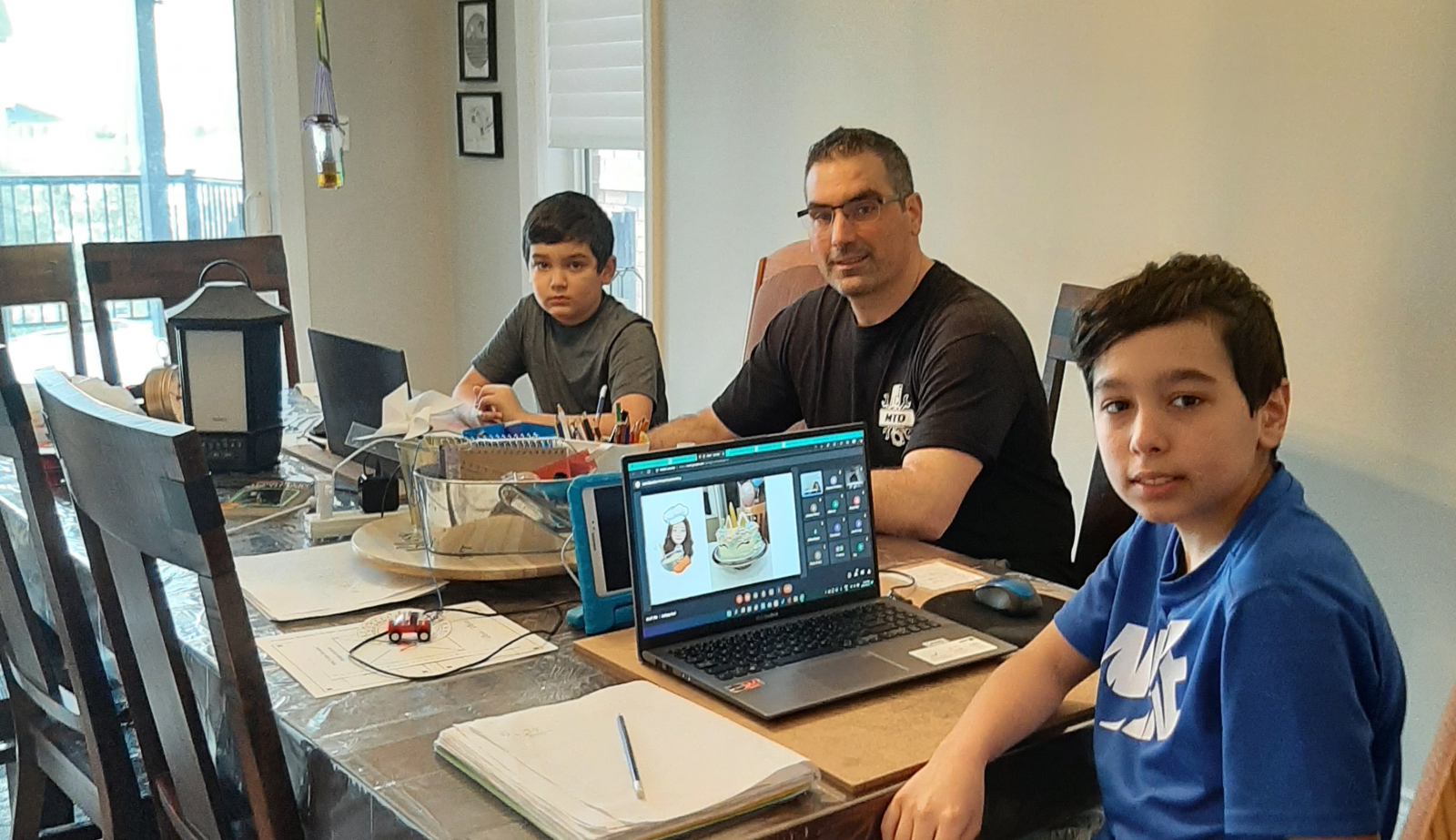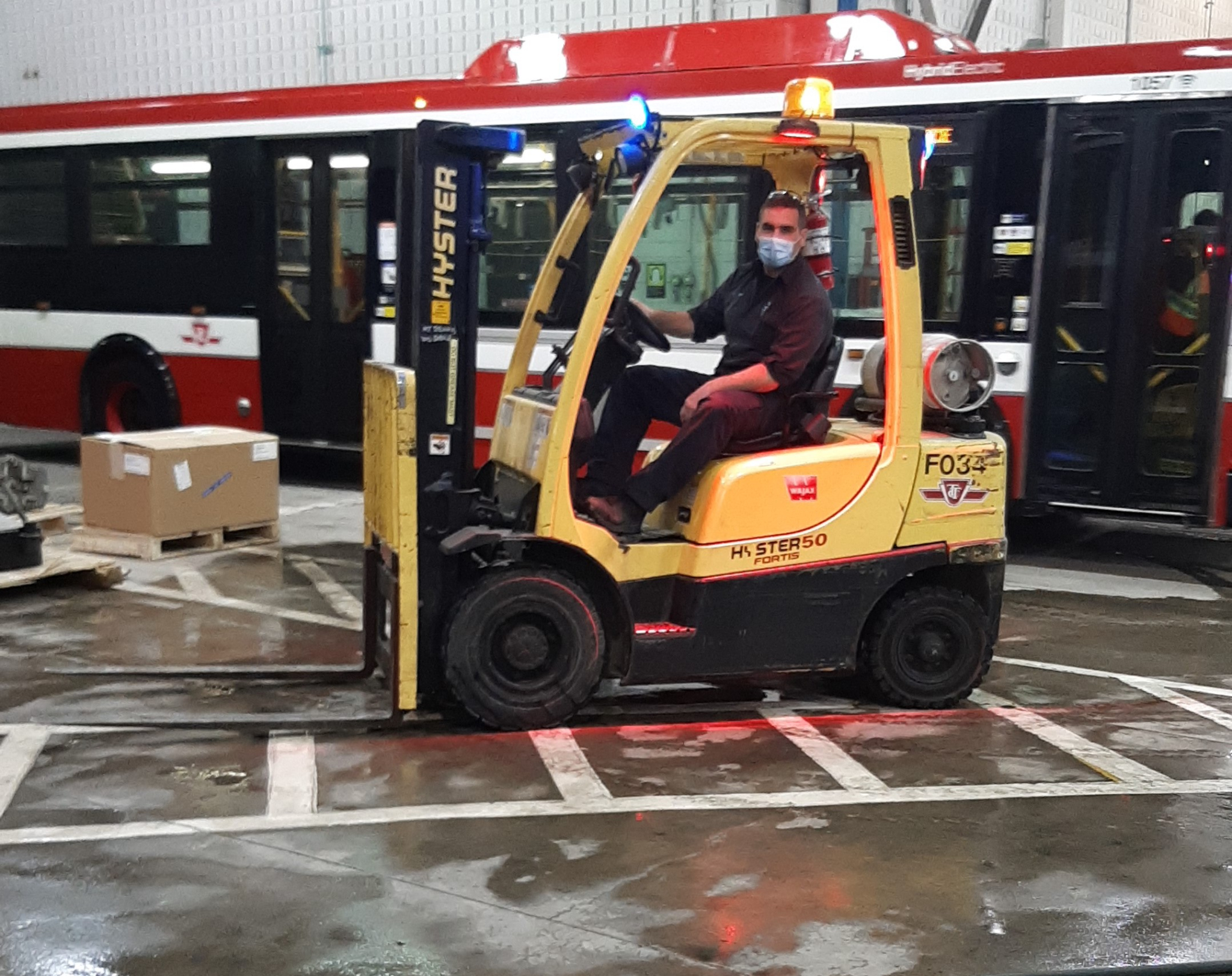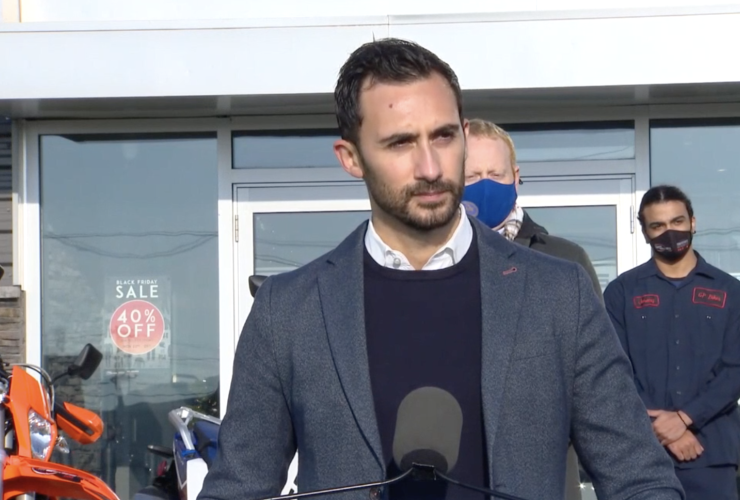A lot has changed in public transit since Alex Cedrone was an apprentice auto mechanic in the late 1990s, and the Toronto Transit Commission technician has trained along with it.
He now helps keep the mostly hybrid and increasingly fully electric fleet of TTC buses at the transit agency’s Mount Dennis Garage on the road, and says the on-the-job training his long-time employer has provided to him (with credentials earned at Centennial College) produces transferable skills useful across a swath of increasingly complex industrial work.
“Today, people may look at mechanics like they are grease monkeys, but it's a very technical problem-solving job in an environment that’s changing all the time,” he said. “And there’s a huge need for this.”
More than three million Canadian jobs will be drastically altered in the next 10 years, affecting around 15 per cent of the workforce as the country moves towards a net-zero economy, the Royal Bank of Canada estimates in a report it put out last week.
It said transportation, energy and manufacturing were changing the most early in this process, and that between 235,000 to 400,000 new jobs would likely be created by 2030 where enhanced climate-related skills will be required.
The bank, which struggles with its own issues related to support for fossil fuel projects, said even faster growth was possible if Canada closed a spending gap and invested the $60 billion more per year needed to reach its climate targets, which it said should start with major carbon capture and green infrastructure projects.
For Cedrone, the green shift has been happening over the course of years, with his TTC apprenticeship in the late 2000s coming soon after its first purchase of hybrid buses and evolving to incorporate the 25 fully electric ones introduced at Mount Dennis around two years ago.
He said a similar number of electric buses, which unlike hybrids require an external charging source, had also arrived at the same time at two other TTC garages retrofitted to accommodate them.
The introduction of hybrid models means manufacturers were able to significantly reduce the size of the internal combustion engine used, Cedrone said, while it has added a level of complexity and danger to the role of maintaining them.
“They took the transmission out and put in an electric motor, a generator and battery, and then a computer that controls that,” he explained. “When you open these batteries, you’ve got 600 volts there, it's all live direct current. It's like going to the subway and touching the third rail. That’s what we’re exposed to.”
The job requires strict safety clearances before pairs of workers can operate on the vehicles, meaning licensed tradespeople are prioritized over apprentices in the small group courses offered, but Cedrone says more junior workers are “in the shop, they’re talking to us, I'm always telling them this or that, they’re asking questions all the time.”

Describing his work as part metallurgy, part detective work and a range of more typical trade skills, Cedrone says he would encourage anyone with a technical bent and a penchant for problem-solving and adaptation to join him in a trade field.
“Everything we do is in a technical society, where we depend on machines so much, which constantly need to be fixed and repaired and maintained otherwise the whole world is shut down,” he said.
“You can raise a family on it, no problem,” he added, noting the afternoon shift he works also means he can take his two boys to school, help with online learning when required and otherwise be more involved in family life.
Morgan Sharp / Local Journalism Initiative / Canada’s National Observer






Comments